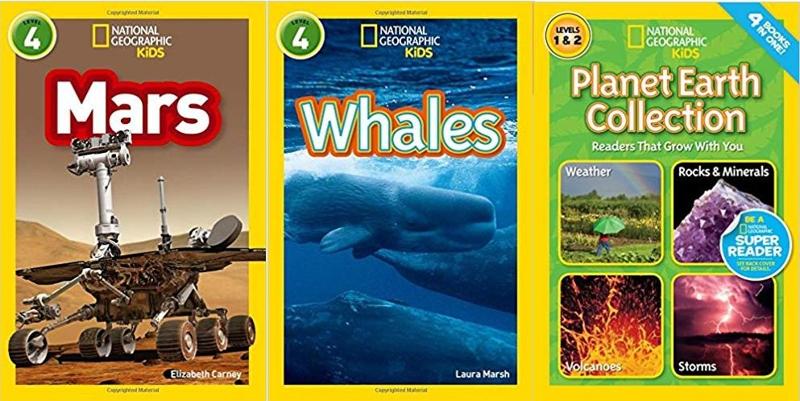
With Wikipedia and YouTube at our fingertips, it never occurred to me that I would ever buy anything other than fiction books for my kids. Well I was wrong!
What are National Geographic Kids Readers
I first heard about these from my older daughter (age 7), when she started spouting esoteric facts I was completely unacquainted with. I was shattered to learn that at the tender age of 7 she already knew somethings I did not. I asked her where she gathered these tasty tidbits of information, and she told me it was from the National Geographic books in her school library.
One day she would be talking about volcanoes, and the the next day about endangered animals. She also started building stories around these nuggets of information. I was impressed by how much these books fascinated her, and was grateful to the school for making them available to her. I wondered if I should subscribe to National Geographic but wanted to wait and see if the fascination would last.
A month or so after these discoveries, my younger one (age 5) made some leaps in reading. She was now able to tackle level 4 ladybird books. I wanted her to widen her horizons and tried suggesting a number of books that had worked so well with the older one. The younger one doesn't like to listen to stories. But she took a great liking the the ladybird books on volcanoes, planet earth and planes. So when she rejected every one of the story books I suggested, I asked her to tell me what kind of books she would like to read.
"Can I read another book with more about volcanoes?" She asked.
I was wondering what a suitable book would be, when the older one suggested the National Geographic Kids Readers. "There is a level 2 book about volcanoes." She informed me.
"A National Geographic Reader? What's that?" I asked, puzzled. "I thought they were magazines."
"No Mama. The books I told you I was reading in school."
Oh, so those were books. Great! My older daughter and I found a 4 in 1 book about volcanoes, storms, weather and rocks. Two of the books in the collection were at level 1, while the other two were at level 2.
We also got a level 4 book on Mars and whales which my 5 year old can read (now a month later) with minimal help.
Now we are waiting for the level 4 book on water to arrive.
Here are the details of the reading levels given behind the book.
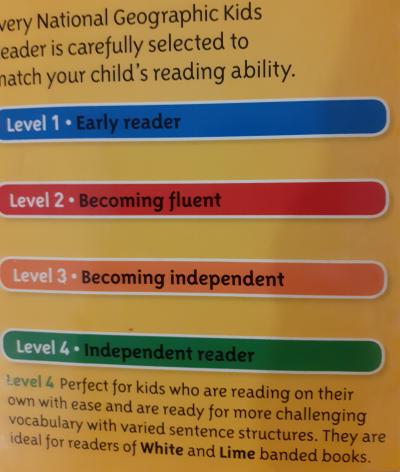
This is what the inside text pages of the books look like. On the left is a level 1 book, and on the right is a level 4 book.
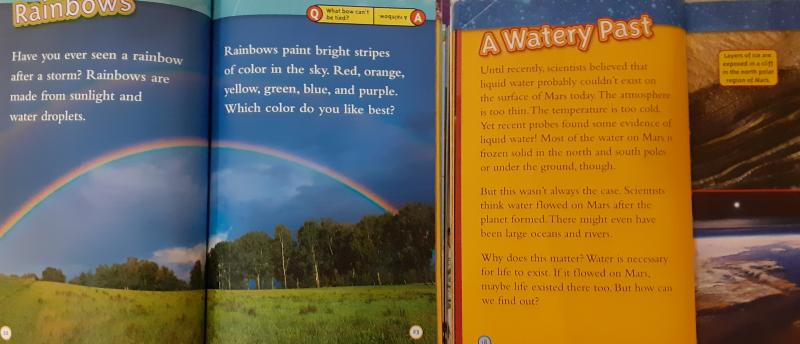
What we liked
The pictures are gorgeous and the paper quality is excellent.
The facts are a well chosen medley of familiar and obscure, but all made accessible to early readers using simple, lucid language.
Every book has a few riddles based on word play and the information included in the book.
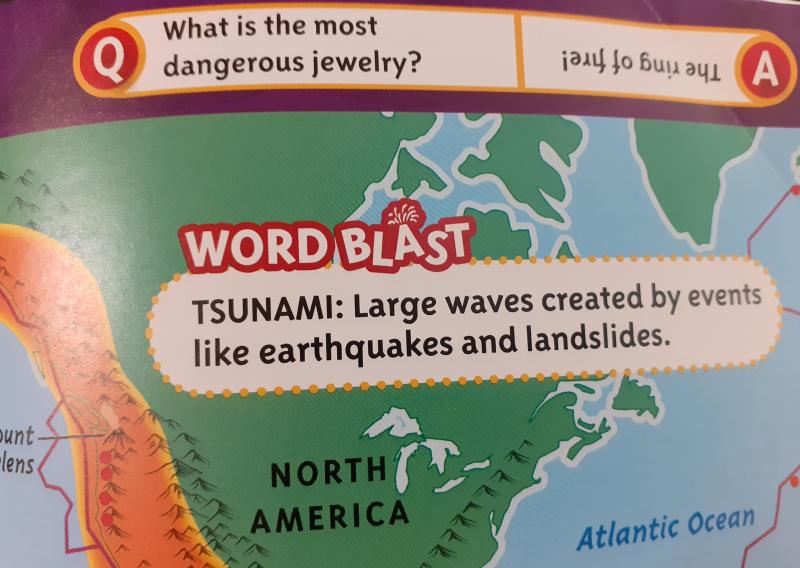
Sometimes pictures are effectively used to convey a lot of information concisely.
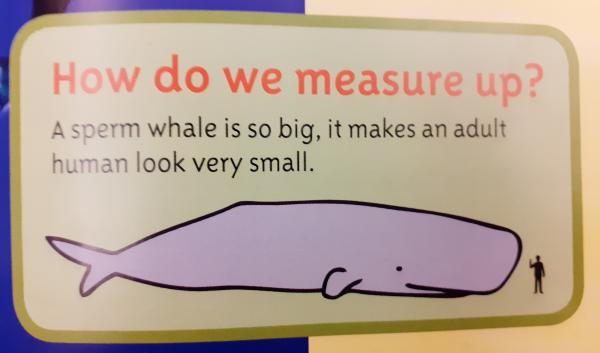
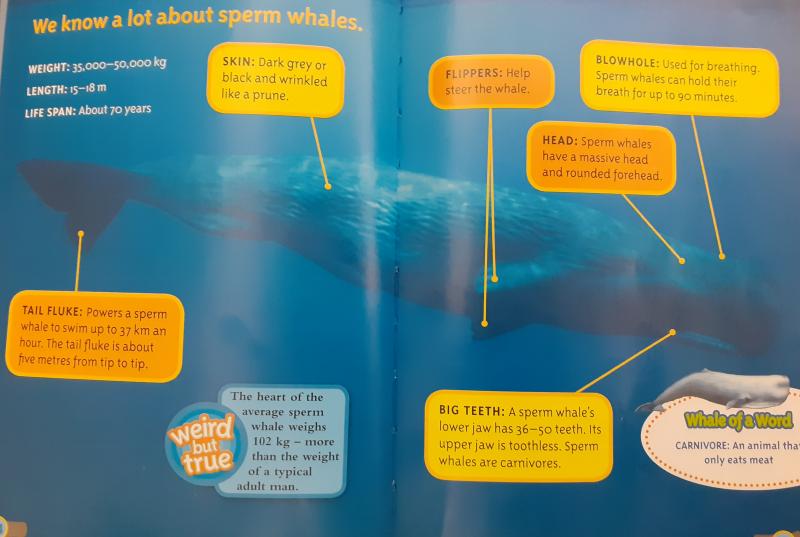
There are little boxes explaining meanings of difficult words and there are tips for pronouncing them.
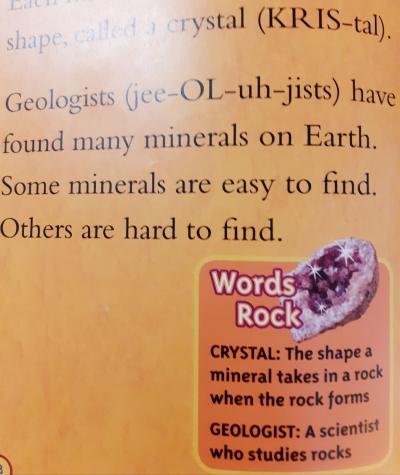
Level 4 books have some pages concisely highlighting key points.
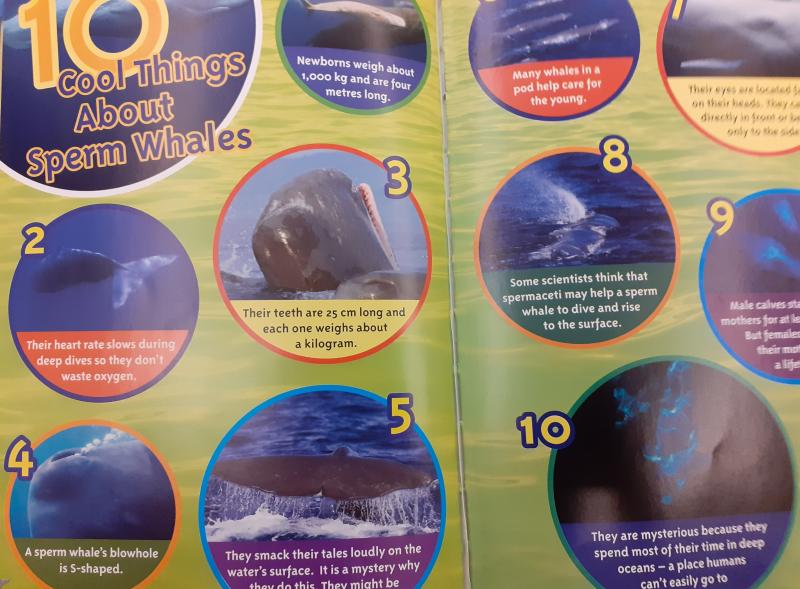
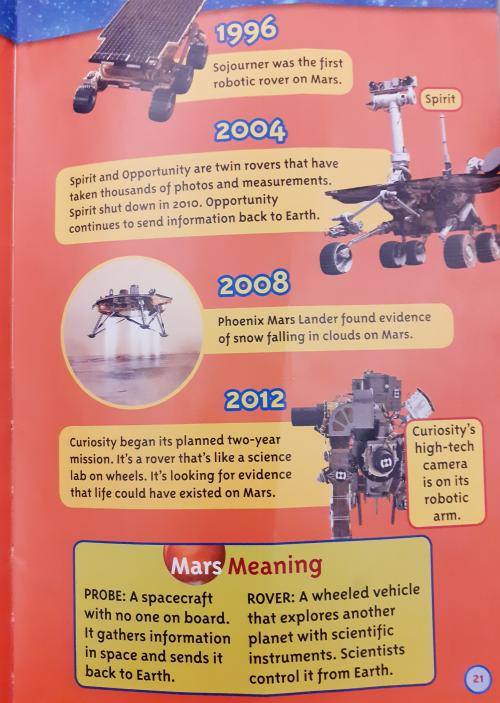
The books are great for kids just learning to read, with the lower level books using mostly easy to read words but still abounding in interesting facts.
They are also excellent resources for older kids curious about a particular topic.
These are great alternatives to bedtime stories for kids who prefer facts to fiction.
My younger one loves taking these books to her preschool and sharing bits of information with her friends.
Some Tips
The level 1 and level 2 books are quite short, so it is better to buy a collection of 4 of them to make the most of your money.
The titles are not always clear. For example, the book titled Whales turned out to be mainly about sperm whales, and other whales were barely even mentioned in the book.
National Geographic videos can add to the learning experience by helping kids visualize the content they have assimilated through reading. After reading the book on volcanoes, my daughters thoroughly enjoyed this video, and to be frank, so did I.
Fact can be stranger than fiction!